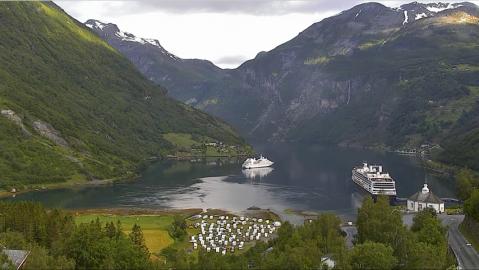"Expertise, Democracy and the Politics of Trust"
2022 Holberg Laureate Sheila Jasanoff in conversation with Professor Cathrine Holst.
Phenomena such as climate skepticism and vaccine refusal indicate a loss of trust in relations between experts and publics in modern democracies.
Comparisons of expert decision-making across democratic societies suggest that reliance on particular forms of evidence-making and public reason differ across political cultures. Trust in expertise emerges as a political achievement that cannot be short-circuited by scientific authority alone. The remedy for breakdowns in trust lies in persuading publics that what experts know does indeed support official policies and regulatory actions. This often calls for better politics, not more science.
Sheila Jasanoff is Pforzheimer Professor of Science and Technology Studies at the Harvard Kennedy School. A pioneer in the social sciences, she explores the role of science and technology in the law, politics, and policy of modern democracies. Jasanoff founded and directs the STS Program at Harvard University. Her books include The Fifth Branch (1990), Science at the Bar (1995), Designs on Nature (2005), The Ethics of Invention (2016), and Can Science Make Sense of Life? (2019).
Cathrine Holst is Professor of Sociology at the University of Oslo. She has chaired several research projects on the role of experts in democracies. In 2020/2021, she chaired a multidisciplinary research group at the Centre for Advanced Study (CAS) in Oslo, and the project "What is a good policy? Political morality, feasibility and democracy". In 2022/2033, Holst is a visiting researcher at the Department of History and Philosophy of Science, University of Cambridge.
This event is a part of the Holberg Week, which this year takes place 7—10 June.
2022 Holberg Laureate Sheila Jasanoff in conversation with Professor Cathrine Holst.
Phenomena such as climate skepticism and vaccine refusal indicate a loss of trust in relations between experts and publics in modern democracies.
Comparisons of expert decision-making across democratic societies suggest that reliance on particular forms of evidence-making and public reason differ across political cultures. Trust in expertise emerges as a political achievement that cannot be short-circuited by scientific authority alone. The remedy for breakdowns in trust lies in persuading publics that what experts know does indeed support official policies and regulatory actions. This often calls for better politics, not more science.
Sheila Jasanoff is Pforzheimer Professor of Science and Technology Studies at the Harvard Kennedy School. A pioneer in the social sciences, she explores the role of science and technology in the law, politics, and policy of modern democracies. Jasanoff founded and directs the STS Program at Harvard University. Her books include The Fifth Branch (1990), Science at the Bar (1995), Designs on Nature (2005), The Ethics of Invention (2016), and Can Science Make Sense of Life? (2019).
Cathrine Holst is Professor of Sociology at the University of Oslo. She has chaired several research projects on the role of experts in democracies. In 2020/2021, she chaired a multidisciplinary research group at the Centre for Advanced Study (CAS) in Oslo, and the project "What is a good policy? Political morality, feasibility and democracy". In 2022/2033, Holst is a visiting researcher at the Department of History and Philosophy of Science, University of Cambridge.
This event is a part of the Holberg Week, which this year takes place 7—10 June.
- Category
- ATLANTIC ROAD
Commenting disabled.














